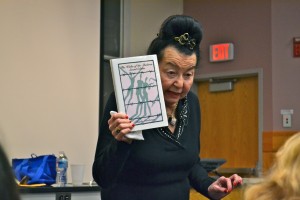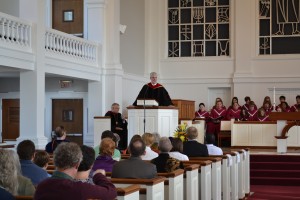Ben Rees
Writer
The Columnist Manifesto
A couple of weeks ago I did not get a column done–oops! Like everyone else, I was inescapably swamped with loads of schoolwork, and in the midst of my scholarly flurrying, I neglected to write. While entrenched in the intellectual firefight preceding Thanksgiving break, my creative spark was nowhere to be found. Not to say that I failed to attempt a column; in fact, I tried to come up with something halfway decent on more than one occasion. Regrettably, the ideas I came up with were nowhere close to pleasant and even further from endearing. I do not know whether rigorous intellectual pursuits necessarily stifle creativity, and as many of my scholarly endeavors are dedicated to English literature, I would assert that homework and creativity go hand in hand. For some reason, I just couldn’t get it together.
William Faulkner once said: “I only write when I am inspired. Fortunately, I am inspired at nine o’clock every morning.” I, on the other hand, seem only to write at a mildly successful level anywhere between six and 12 hours before my deadline. There are two possibilities for this: one, the increased need to produce stimulates whatever comedic abilities I may have, or two, I get stressed and bitter enough that my anger ends up sounding funny. Take a look back, and I think we can all agree that the latter is probably right on the money. All my columns either rant, tell people what not to do or make incomprehensibly juvenile jokes about body parts.
An embittered columnist cannot produce comedy forever, as he is not on stage to make goofy faces and provide filler jokes bashing the ugly couple in front. Rather, from now on, I, Benjamin Rees, will try to be a little more optimistic in my writing. The glass is no longer half full of poison, it is just half full–maybe of Fanta or something else pleasant.
Now don’t forget, my goblet still overfloweth with bubbling scorn, and I rather dislike most things; however, in the spirit of the artistic process I will attempt to create some original, positive jokes in order to make everyone’s day shine a tad brighter. Call this column my metamorphosis: a once sour larvae blossoming into a beautiful, yet decently funny butterfly. With immense grace, as if erupting from its cocoon like the Alien from an unsuspecting abdomen, it spreads its wings and lightly flutters upon the generally confused synapses of those misfortunate enough to encounter this questionable transformation.
Disclaimer: If you have laughed at all during this column, you should be shamefully aware of your cynical chuckles. Every word espouses a delicate, personal transformation, and any humor this may have aroused in my audience is at the expense of my personal progress. Essentially, my happiness is a joke. Thanks, jerks.


